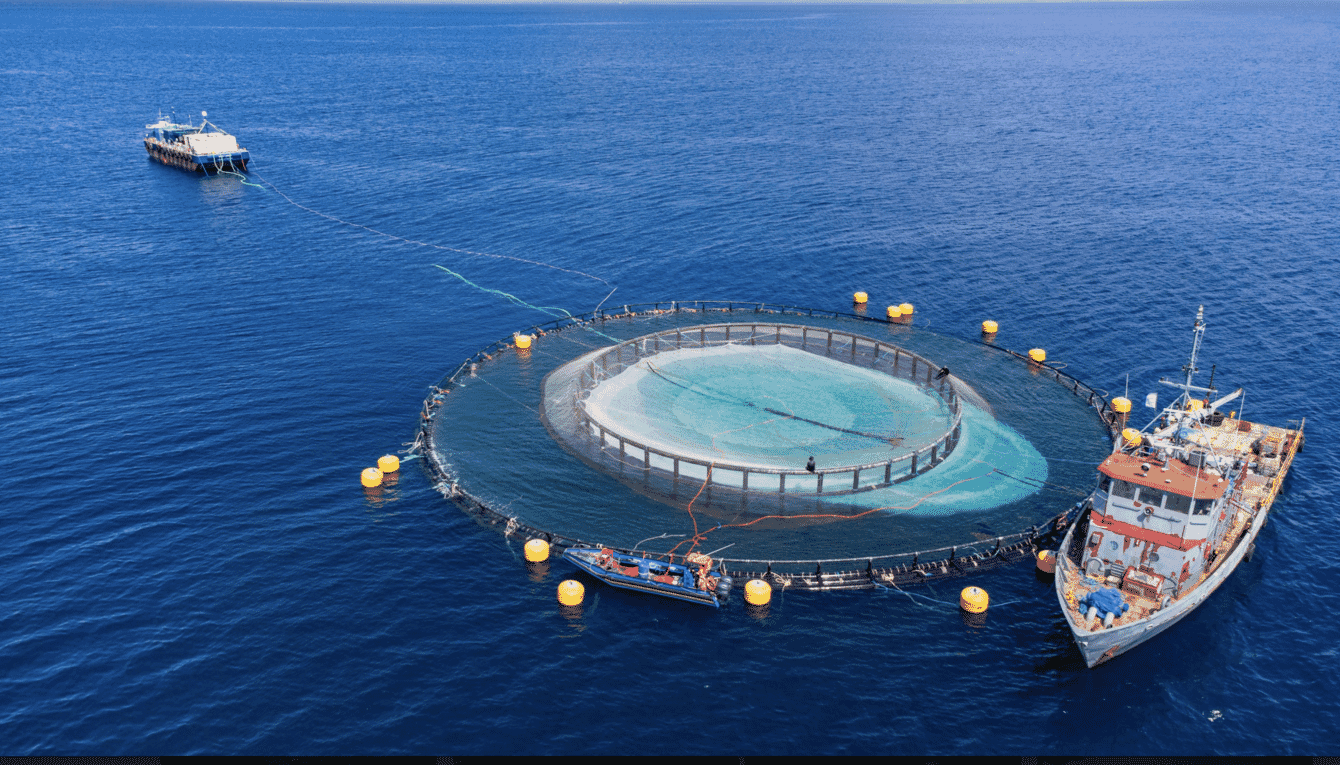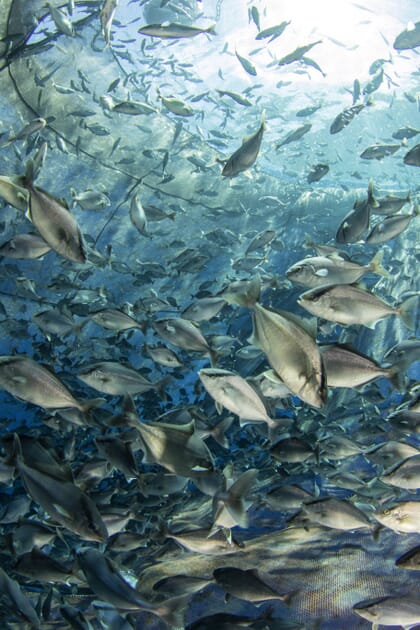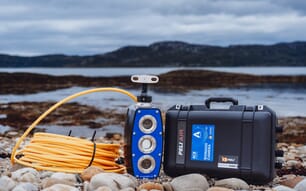
A review from The Nature Conservancy has found that Forever Oceans aquaculture approach comes with fewer environmental drawbacks than other forms of marine finfish farming © Forever Oceans
Offshore aquaculture company Forever Oceans is announcing results of an environmental assessment conducted by the global conservation organisation The Nature Conservancy (TNC). Forever Oceans, which has developed its offshore operations to not only be scalable but highly sustainable, is currently raising kanpachi off the West coast of Panama and selling product in the United States. The full TNC assessment can be read here.
"We're proud to have worked closely with The Nature Conservancy in carrying out this environmental assessment of our operations," said Forever Oceans CEO Bill Bien. "The findings confirm that our approach to raising fish can have significantly less of an impact than traditional forms of aquaculture. Our near-term aim is to be scope 1 & 2 carbon neutral by 2027. This is a bold goal, but we feel confident in taking on the challenges to achieve it."
The aim of the assessment was to establish a baseline for the company's environmental performance and determine the actions required to meet ambitious sustainability goals in the coming years. The carbon footprint for Forever Oceans fish is estimated to be less than 1/14 of that for beef. The farm-gate footprint of Forever Oceans Kampachi is estimated at less than 5 kg of carbon per kilogram of fish produced, which is less than global average emissions for farmed salmon and is therefore a comparatively low emissions form of animal protein.

Offshore aquaculture systems can contribute to building a low carbon food system and operate in harmony with ocean ecosystems © Forever Oceans
The assessment also confirmed that Forever Oceans' approach to raising fish is likely to have a negligible impact on the ocean floor—a point of differentiation in one of the key areas of environmental concern for finfish aquaculture. Based on the modelling of Longline International, the average deposit rate of carbon dioxide equivalent produced by Forever Oceans operations in Panama is an order of magnitude less than the "best" Atlantic Canada Sediment Sulphide Classifications & Estimated Carbon Loading Rate, the leading international standard (0.048 g CO₂/m²/d vs 1.0 g CO₂/m²/d).
"Our work with Forever Oceans demonstrates the environmental advantages of offshore aquaculture systems. With the right intent and practices, these systems can contribute to building a low carbon food system and operate in harmony with ocean ecosystems," said Robert Jones, global lead for The Nature Conservancy's Aquaculture Programme. "We commend Forever Oceans for taking a proactive approach and moving forward with a scientifically rigorous process to develop its sustainability goals and encourage other operators to do the same."
In its 2022 report, The State of World Fisheries and Aquaculture, the FAO calls for a “Blue Transformation”, with the intensification and expansion of sustainable aquaculture as a recommended first step. The Nature Conservancy has called sustainable aquaculture "critical for feeding the world in a changing climate" and has authored numerous reports on the merits of offshore aquaculture.
Forever Oceans is the first company to execute commercial deep-water, offshore aquaculture by applying a suite of cutting-edge technologies. By operating in water more than 100 meters deep using patented single point moorings, satellite-controlled robotics and AI-driven sensors and cameras, the company is growing fish in the clean, open ocean. The Nature Conservancy, headquartered in Arlington, Virginia, is dedicated to protecting the lands and waters on which all life depends.
"Forever Oceans is on track to provide one of the lowest carbon fish products on the planet," said Flor Torrijos, director of ARAP, the government agency regulating aquatic resources in Panama. "They've prioritised environmental stewardship and operating responsibly in our country. This study by Forever Oceans and The Nature Conservancy is another step in developing Panamanian aquaculture as a global leader in sustainability."




